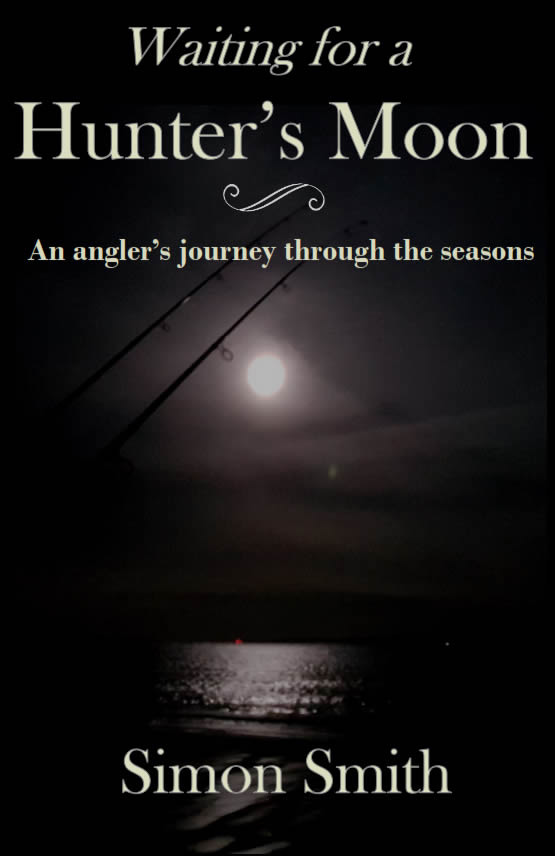Image generated by DAL-E
Dawn has yet to break fully over the silhouetted hills behind me. It will make little difference when it does anyway. I am tucked out of sight between the rocks, hovering only three feet from the surface of the water, water so calm that, if I concentrate for a moment, I can make out finer details in my wavering reflection: bags under the eyes and a slight rash of stubble, the signs of missed sleep and an early start. The cloying damp and the tang of ozone thicken around me like last night’s soup in this dank nook.
Despite the month, it is cold. There will be little to differentiate July from November until the sun has been up for a few hours, but I am prepared for the wait. Travelling light, I am almost nomadic in my body warmer; I carry only a bucket and a light rod, my grandfather’s tattered canvas knapsack, containing a small flask of tea and a few odds and ends, slung over my shoulder.
Nothing moves in the windless morning; not even the wind stirs. Every small sound I make ricochets from rock to rock and echoes out from this craggy enclave. This close to the water, every move I make must be quiet, stealthy, the sinuous connivings of a stoat on a riverbank. Slowly I slip the plastic box from my bag, sliding out a pre-cut chunk of mackerel. It’s easier this way - less movement and fuss when the bait is prepared at home in those excited, sleepless hours before this kind of session.
The hook is threaded in and out of the bait a few times, leaving the point proud in anticipation of the moment when a bass may slam into the simple rig, allowing the needle-sharp barb to drive home. Good. A gentle, pendulum-like swing and the baited hook slips into the water with a faint plop only five or six yards from where I am perched. The ripples recede, everything settles once again into silence and my friend and I, thirty yards apart, are simply absorbed back into the gloom.
Out along the length of the distant promenade, the first simple stirrings of life flit around the solitary outlines of early strollers and dog walkers stumbling through the dawn’s initial blush. We wait on.
By ten o’ clock the world has fully woken, both the tide and the sun have risen considerably and we’re no longer alone. In the passage of only a few hours the first of the others have started to materialise and come to settle around us; at various points, blunt white torsos chipped into shape by long periods of exposure to the sun have begun to appear on the tips of the outermost rocks where they stand and face silently out to sea.
Another twenty minutes slip by and nothing but a handful of mackerel and eels interrupt the gentle cadence of the morning; they are swung in juddering and quickly, but gently, released back into the water. We have not come for them today.
More have come to populate the platforms around me, the nearest bodies marked with inked-out patchworks of multi-coloured whorls and serpentine coils, tribal insignias flickering across flesh pierced and glinting. Behind this, the steady throb of R and B blurs the air as a long, snaking line, gaudy in summer colours and loaded down with boxes, buckets and bags, undulates along the breakwater toward us, quivering slightly in the building heat.
Other noises have now begun to rise above the music. A group of Polish lads twenty feet away buzz in a swarm of their vowels and soft consonants; an Indian man barks at his two young boys as they skitter about and chatter like macaques, all wide smiles and impish action. A Chinese family further up towards the end huddle into themselves, relaxed and flicking low susurrant whispers to each other.
The languages and dialects merge into a dense mesh around us as the mackerel, the bounty for which they have all turned up, start to come in thick and fast. The whole pier is a vibrant thrum of industrious activity, arms thrown forward and back as lines are cast toward the sea, the steady sink and draw of the rods calling to mind the steam-driven pistons of a Victorian dockyard or factory as dozens of mackerel, scad and lithe, flexing garfish are hauled efficiently from the water in dangling, pearlescent strings, to disappear kicking away their last percussive moments in rustling bin liners and Tesco carrier bags.
Finally, it happens. The rod jerks alive in my hands and is almost wrenched from my fingers as it makes a sudden jagging lunge down towards the sea. The line sings that eerie single note that always thrills down the back of my neck like icy fingers, raising the fine hairs as I lean back into the fish, watching the line zig zag in and out from the rocks in a living cardiograph, then swoop around in ever smaller circles. All this waiting and it’s over almost as quickly as it began. Two minutes of struggle, a few yards of line, some head shakes and crash-dives and I “have colour” in front of me: first a quick, bright flash and then a solidifying flex into shape and depth just beneath the water as the bass emerges just beneath the surface like a car following its own headlights through fog. Soon after, I’m guiding the bass over the lip of the waiting net in front of me.
We skip from the rocks to the flat concrete surface above to weigh our prize, what turns out to be a four-pound bar of silver flaring in the midday light, all shimmering scales and armour-plated spikes.
Looking up we notice for the first time how drastically the breakwater has been transformed. Deckchairs, tents, umbrellas and cool boxes are scattered in a multi-coloured shambles under plumes of cigarette smoke. Everywhere, beers are being opened, glistening bodies are reclining in chairs and along the concrete, splayed out in the heat; shouts layer over shouts as the smells of sun cream and hot flesh permeate the air and mingle in their warm biscuit aroma whilst the breakwater shimmers like a souk in the sun.
Now all eyes are suddenly on us, two strangers dressed in jeans, body warmers and boots who have appeared from nowhere. Out in the open, away from our shady little enclave, I realise how hot it has become and how much we’re sweating now in our seemingly ill-suited clothing. I remember that I am still holding something this day has not yet seen, the only thing we came for. Everybody crowds around for a closer look. Closer still. The crowd parts then seals itself behind me as I pass, continuing to watch. The comments begin to come: “She’s a corker”, “He’s a lovely fish”, always the anthropomorphic tendency to assign a gender to each fish. Others comment on how it must wish it had never taken my bait and how it must be rueing its luck, but I see it, truly see it: one continuous silver streak of instinct and speed and death and evolutionary beauty. Tight, muscular and ready to take flight at a moment’s hesitation or the slightest mistake on my part, this is a raptor of the sea. The fish is tenderly cradled into the water then released to flash back into the depths with a mercurial flick of its tail.
This is no longer any place for us. Ours is a different world, a sparsely populated outpost, not this booming cosmopolis. We decide that now is a good time to leave, packing away quickly and leaving as quietly as we came. I imagine those left on the pier, throwing the occasional curious look in our direction as we shrink and disappear like a mirage into the wavering middle distance, growing smaller and smaller so that, after only a couple of minutes, it seems that we were never there at all.
Serialisation of ‘Waiting for a Hunter’s Moon’ by Simon Smith (with permission). This book is published by and can be purchased from Cambria Books HERE

Thanks for reading Cambria Stories! Subscribe for free to receive new posts and support my work.


